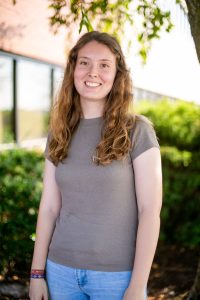Civic Scholar

Almost every American can say that the COVID-19 pandemic changed their life in some way. In particular, those who work in healthcare can testify to the impact it had on medicine and the healthcare industry.
Dr. Sigmund Seiler, an associate professor of family medicine at Liberty University College of Osteopathic Medicine, described his own experience when news of the pandemic struck. He was serving patients on a mission trip in Honduras and barely made it back into the U.S. before the borders were closed to minimize travel. After he returned, Seiler continued working as a doctor.
At the wake of the pandemic, the healthcare industry faced a series of wildcards and unknowns. Seiler explained how many healthcare professionals, despite having limited knowledge on COVID-19, had to figure out how to manage patients, how to dress when they saw patients and what kind of masks to wear.
Healthcare professionals faced other challenges such as determining proper treatment and isolation procedures, physician burnout and a breakdown of the relationship between the patient and the physician. As a result of the unknown and the fear, distance and distrust grew between physicians and patients, according to Seiler.
“There was so much in the media… that just created a lot of trouble for both patients and physicians,” Seiler said. “Early on, a lot of the doctors … weren’t seeing patients in the office, so there was a lot of telemedicine going on. Again, you had that distance between the doctor and the patient.”
The lingering effects of the COVID-19 pandemic can still be observed today. Seiler said that some of the distrust that developed between physicians and their patients still remains.
“This pandemic — and this is where the distrust comes in, too — took a lot away from patient autonomy,” Seiler said. “People were losing their jobs. Military personnel were being discharged from the military because they refused to take a vaccine. I’ve just never seen that happen in the history of medicine.”
However, while the pandemic was a dark time for many, there were still rays of light poking through the darkness. Seiler believes many families had the opportunity to grow closer during the pandemic because they were forced to stay home. Seiler also described how many Americans began looking at natural alternatives to commercial medicine, partly due to the fact that they did not have access to healthcare and partly due to the fact that the pandemic caused a lot of people to be more proactive towards their health.
“People really started looking (and asking,) ‘What can I do from a natural standpoint? Are there vitamins? Are there supplements? Are there things that I can use that are not purely from big pharmacy companies?’ I think that’s interesting, and I’ve seen a trend in that over the last couple years,” Seiler said. “And it’s not all distrust, either. It’s just so many people didn’t have access to healthcare because of the pandemic. … And so, I actually think that’s a positive effect of the pandemic. You saw people taking more responsibility for their healthcare.”
He explained that it is best to be prepared on an individual level and to take steps to prevent oneself from falling ill. This means individuals need to take care of themselves, keep up their vitamin levels like vitamin D and get in the habit of researching health issues.
At the beginning of the pandemic, since there was little research on COVID-19 and its treatments, physicians sometimes had to take things into their own hands and conduct their own research. For many healthcare professionals, the goal was to serve their patients as best they could.
“At the end of the day, we as physicians need to foster genuine caring relationships with our patients,” Seiler said. “I’m proud of our medical school here because I think we’re producing some high-quality physicians that aren’t just intellectually sound, but they’re also caring, compassionate and a lot of them are Christians. They take that (into the workforce).”
Bear is the editor-in-chief for the Liberty Champion

